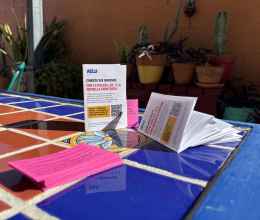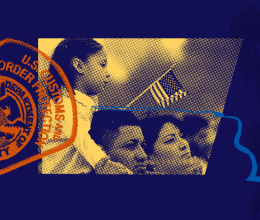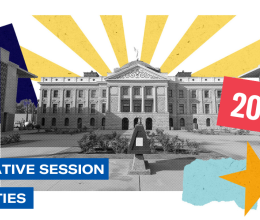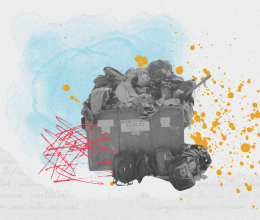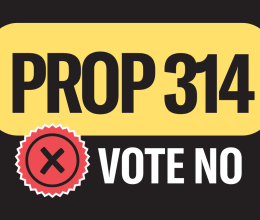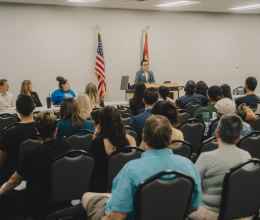
FOR IMMEDIATE RELEASE
TUCSON—The ACLU of Arizona is demanding immediate changes to Tucson Police Department (TPD) policies after an investigation of TPD traffic stop records found that officers enforcing Section 2(B) of Arizona’s SB 1070 are in many cases prolonging stops in order to investigate individuals’ immigration status. These practices violate strict constitutional limitations on police involvement in immigration enforcement as well as TPD’s own policies. The ACLU of Arizona’s findings are detailed in a letter sent to Tucson Police Chief Chris Magnus today, and are based on a review of TPD stop records from June 2014 to December 2015, which the ACLU of Arizona obtained through a public records request.
The ACLU of Arizona’s investigation identified clear or potential constitutional problems in more than 75 percent of the stops it reviewed—85 out of the roughly 110 cases that TPD identified in which Border Patrol responded to the scene of a stop. The majority of these incidents were routine traffic stops, many involving minor infractions that led to unlawfully prolonged detention, including transport to Border Patrol custody. More than a dozen records revealed immigration checks producing false positives, or “hits,” resulting in extended detention of U.S. citizens and other lawfully present individuals. In some cases, families with young children were detained roadside in order for the parents to be handed over to Border Patrol agents.
While the Supreme Court recently held, in Rodriguez v. United States, that a traffic stop extended “seven or eight minutes” past the time required to address the basis for the stop violated the Constitution, TPD’s data shows routine stops lasting anywhere from fifteen minutes to three hours before Border Patrol’s arrival. The majority of the stops reviewed by the ACLU lasted between one and two hours.
The ACLU also submitted a letter to the Department of Homeland Security (DHS) demanding an investigation into Border Patrol’s improper involvement in TPD traffic stops. In addition to rights violations, TPD stop records indicate Border Patrol is disregarding DHS enforcement priorities as well as the Obama Administration’s promises to limit federal participation in the enforcement of SB 1070, including involvement in routine traffic stops.
“TPD’s own records confirm what Tucson community members have been saying for years: in many cases officers are going out of their way to transfer people to Border Patrol, regardless of the delay that results or the fact that SB 1070 does not—and cannot—authorize prolonged detention," said James Lyall, a staff attorney with the ACLU of Arizona. "These practices are blatantly unconstitutional and profoundly undermine the community’s trust in law enforcement.”
The letter highlights more than twenty case examples, including:
-
A mother driving her two children to school was stopped and found to have a suspended license, for which she could have been cited and released. Instead, TPD detained her until Border Patrol arrived to take custody, over an hour after the officer’s immigration check and one hour and twenty minutes after the stop was initiated.
-
Two individuals stopped for speeding identified themselves as “DREAMers.” The officer advised them “they were being detained as they had provided no evidence of being in the US legally” even though that is not a crime and gave the officer no authority to detain them. The officer requested Border Patrol respond to the scene. Border Patrol arrived but declined to take either subject into custody and the stop was concluded—one and a half hours after it was initiated.
-
A driver was stopped and found to have a suspended license. The officer conducted an immigration check, which indicated the driver was undocumented. Border Patrol arrived and determined the driver was a U.S. citizen—one hour after the immigration check was initiated. TPD cited and released the driver four minutes later.
The records obtained by the ACLU of Arizona also indicate that TPD supervisors have provided inaccurate guidance on officers’ legal authority—including stating, incorrectly, that officers waiting for Border Patrol are not “restrained by time”—and that officers have not received specific training on TPD immigration policy since July 2014, when officers took a 12-page online training course.
“There is no excuse for TPD supervisors providing false and contradictory guidance on the strict limits of officers’ immigration authority, or for providing officers with such minimal training on key developments in relevant case law and numerous revisions to TPD immigration policy in recent years," said Victoria Lopez, ACLU of Arizona legal director. "These fundamental oversight failures are a recipe for abuse.”
Prior to implementation of Section 2(B), the ACLU and other civil rights organizations, community leaders, and government officials all warned the law would result in the very civil rights violations now described in TPD stop records. In upholding Section 2(B), the Supreme Court in Arizona v. United States cautioned that “to delay the release of detainees for no reason other than to verify their immigration status” would “raise constitutional concerns.”
The ACLU of Arizona’s letter to TPD includes a detailed list of policy recommendations and calls on TPD Chief Chris Magnus to conduct an immediate review of TPD immigration policy and to “implement all necessary changes to ensure officers are not exceeding the lawful scope of their authority.” The ACLU of Arizona is also calling for limits to and oversight of Border Patrol involvement in routine stops by local police.
###
